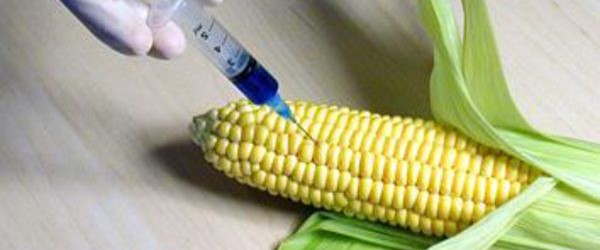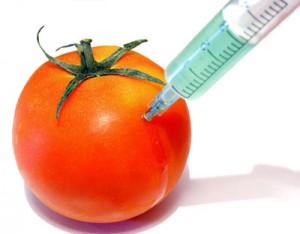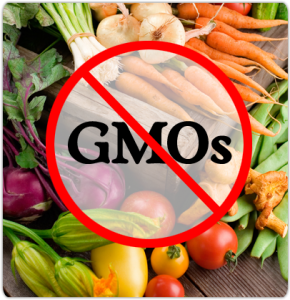
By Sameh Soror
Humankind is facing big challenges in the form of Energy, water, poverty, education etc. The first millennium development goal (MDGs) as identified by the UN , was eradicating extreme poverty and hunger. To eradicate hunger, we need to achieve sustainable food security. According to Rio+20 – UN Conference on Sustainable Development, Food Security is defined as “when all people, at all times, have physical and economic access to sufficient, safe and nutritious food, to meet their dietary needs and food preferences for an active and healthy life” . Some people see genetically modified crops, as playing a big role, in helping to reach this goal.
What is GMO
Genetic modification is the technology, that employs genetic material from unrelated organisms and injects them into another organism (plant or animal), to confer the recipient organism new and desirable features i.e. higher yield, pest resistance, drought tolerance etc.
According to the ISAAA report , developing countries are at the top of the GMO production scale, with USA ranked number 1 in the production of genetically modified organisms, while Brazil is ranked second and Argentina is ranked 3rd. In the case of the Muslim world, only two countries are among the international GMOs producers: Pakistan, ranked 8th globally and Egypt ranked 24th.
At the moment, there are around 160 million hectares around the world cultivated with GMOs. Out of these, more than 30 million hectares are in Brazil and around 24 million hectares are in Argentina. The production is focused on Maize, soya beans and cottons. The Brazilian case, in particular, can be inspiring for many countries in the developing world. They started to use GM crops in the early 1990s and now Brazil has become the engine of GMOs growth around the world. Currently, Brazil cultivates around 50% of its lands with GM crops. They can now develop, deliver and approve a new state of the art biotech crop, with their own indigenous resources.
Lack of GMO’s in the Islamic World
The world is divided into two parties: one party is against the extensive use of GMOs, which is lead by the EU. They prefer organic matter and perceive it to be healthier. They are of the belief, that GMO’s do more harm than good. The second party, headed by the US, is supportive in using GMOs widely. They argue that GMO’s have no proven risks and hence, there is no harm in using them. A food security expert at a leading university in the US, Dr. David Comell, is of the opinion that “The GMO movement must continue. The worlds hunger is getting ridiculous. In such a case, the only solution is GMOs, GMOs and more GMOs.”
Positive outcomes of producing GMOs are the expected high yield, resistance to pests and drought tolerance. But those who are against GMOs think, that GMOs can introduce allergens and toxins into food, GMOs may lead to developing antimicrobial resistance, constitute risk to biodiversity, may lead to creation of superweeds (if  the resistance genes transferred to weeds) and other environmental risks and it may cause adverse changes in the nutrient contents of crops.
the resistance genes transferred to weeds) and other environmental risks and it may cause adverse changes in the nutrient contents of crops.
Right or wrong?
In addition to the previous general concerns about GMOs in the Islamic world, another debate bordering on religious dogma, has surfaced in the Muslim world. This debate revolves around whether GMOs are religiously acceptable (‘halal’) for the Muslim community to consume. This is where opinions differ. Food policy professor Dr. Adan Saleh believes that, “We are losing a great chance by consuming ourselves in this haram-halal debate. While other countries are progressing by employing this innovative technology, we are again left with mere issues. There is nothing religiously ‘unacceptable’ in my opinion. It is simple science and nothing else.”
However, there are others who differ in opinion, such as agricultural researcher Adeeba Khairun, who has spent the last few years researching on GMO and feels that “there are some aspects to GMO that require more research, only after which it can be deemed appropriate or inappropriate.” Several Islamic countries have sufficient resources and expertise, that can enable them to lead the scene in this field and set the ground.
If we look at the different concerns around GMOs, are they really valid? To date, there does not seem to be any substantial evidence of GMO crops that caused weed growth, as cross-pollination rates are very low. Similarly, there is no evidence of a large-scale increase in pesticide resistance in insects or antibiotic resistance due to GMOs. GMOs have been used in USA since two decades and none of the previous anti-GMO claims has been recorded.
One ironic question arises here, is that while the Muslim countries might not be indigenously producing any GMO’s, yet are they still not consuming such products through imports? GMOs exist in more than 80% of food packaged in USA and whats more is, that USA and Canada have no restrictions on labeling GM food . When we are consuming GMOs already, then why not produce it internally as well? This will enable the Muslim countries to not only become self-sufficient and rely less on imports but, also set their own rules and regulations so as to ensure that GMOs will be appropriate to consume.
One Major risk of using GMOs seeds is the monopoly of large companies, but this can be regulated through tough monitoring and fair legislation, which ensure rights of small farmers as well as big companies.
The way forward
GMOs is not the only way to achieve food security but, it is one option that should be explored carefully. In a world of increasing hunger facing drastic climate changes, once cannot afford to ignore GMOs as a possible option for improving food security. Moreover, if the Muslim countries come together in developing this field within the Muslim regions, then it can not only aid food security but, also work towards the unison of the Muslim world.
The Author is an Associate professor of Biochemistry and Molecular Biology, Head of center for scientific excellence “Helwan Structural Biology Research” (HSBR) and Co-chair of the Global Young Academy (GYA), Helwan University, Egypt.
References:
http://www.un.org/millenniumgoals/
http://www.uncsd2012.org/index.php?page=view&type=400&nr=227&menu=45
http://www.isaaa.org/resources/publications/briefs/43/executivesummary/
http://healthresearchfunding.org/pros-cons-genetically-modified-foods/
You must be logged in to post a comment.